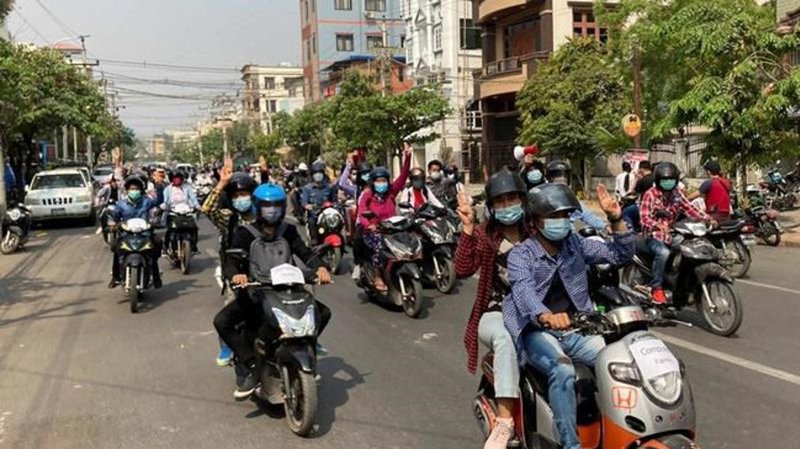
Myanmar junta orders martial law in 6 Yangon townships
YANGON, Myanmar — Myanmar’s ruling junta has declared martial law in six townships in the country’s largest city, as security forces killed dozens of protesters over the weekend in an increasingly lethal crackdown on resistance to last month’s military coup.
State broadcaster MRTV said Monday that the Yangon townships of North Dagon, South Dagon, Dagon Seikkan and North Okkalapa have been put under martial law. An initial announcement was made late Sunday saying two other townships — Hlaing Thar Yar and neighbouring Shwepyitha — were being placed under martial law.
At least 38 people were killed Sunday and dozens were injured in one of the deadliest days of the crackdown on anti-coup protesters, according to the Assistance Association for Political Prisoners, or AAPP, an independent group tracking the toll of the violence. Several estimates from other sources gave higher figures.
Complicating efforts to organize new protests as well as media coverage of the crisis, mobile internet service has been cut, though access is still available through fixed broadband connections.
